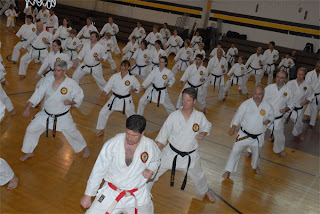Cancer is big business and knowledge claims on any treatments that earn money and, conversely, on any treatments that do not earn money for the drug companies, are never neutral. Ralph Moss served as the assistant director of public affairs at America’s most famous cancer research institution, Memorial Sloan Kettering, in Manhattan. Cancer Society in the nineteen-eighties, concluded much the same as that study. Cancer industry. Most telling, according to Ralph Moss in his book Questioning Chemotherapy, is that in a good number of surveys, chemotherapists have responded that they. Is director of the The Moss Reports for cancer patients. Moss is the author of eleven books and three documentaries on cancer-related topics. He is or has been an advisor on alternative cancer treatments to the National Institutes of Health, the National Cancer Institute, the American Urological Association, Columbia University, the University of Texas, the Susan G. Komen Foundation and the German Society of Oncology. Ralph Walter Moss (born May 6, 1943) is an American author whose writings promote complementary and alternative cancer treatments. In 1974, he earned a PhD in Classics from Stanford University. [1] Moss served as a science writer [2] at Memorial Sloan-Kettering Cancer Center in the 1970s. The medical writer Ralph W. Moss, PhD, has written or edited twelve books and four film documentaries on questions relating to cancer research and treatment. Moss is a graduate of New York University (BA, cum laude, Phi Beta Kappa, 1965) and Stanford University (MA, 1973, PhD, 1974, Classics).
| Born | May 6, 1943 (age 76) Brooklyn, New York |
|---|---|
| Occupation | Science writer |
| Language | English |
| Nationality | American |
| Citizenship | United States |
| Subject | Alternative medicine and alternative cancer treatments |
The Cancer Industry Ralph Moss Pdf Free

Ralph Walter Moss (born May 6, 1943) is an American author whose writings promote complementary and alternative cancer treatments. In 1974, he earned a PhD in Classics from Stanford University.[1] Moss served as a science writer[2] at Memorial Sloan-Kettering Cancer Center in the 1970s. He was fired in 1977 by Sloan-Kettering after publicly accusing the institution of suppressing information on laetrile, a now-discredited alternative cancer treatment.[3] He has subsequently served on the advisory board of the Office of Alternative Medicine, and he markets Moss Reports covering various forms of alternative medicine.[4][5]
His book The Cancer Industry was negatively reviewed by Quackwatch, who noted that 'the book is dangerous because it may induce desperate cancer patients to abandon sound, scientifically based medical care for a worthless 'alternative.'[6]
References[edit]
The Cancer Industry Ralph Moss Pdf Download
- ^'About Us page from Moss' website'.
- ^Letter from MSK re Moss's appointment
- ^Budiansky, Stephen (July 9, 1995). 'Cures or `Quackery'?'. U.S. News & World Report. Archived from the original on September 3, 2011. Retrieved December 14, 2011.
- ^Dembart, Lee (June 5, 1990). 'Book Review: Still Treating the Debate on Cancer'. Los Angeles Times. p. E12.(subscription required)
- ^Goldstein, Michael S. (1999). Alternative health care: medicine, miracle, or mirage?. Temple University Press. p. 9. ISBN978-1-56639-678-3.
- ^Book Review: The Cancer Industry. Quackwatch. . Retrieved 22 March 2019.

External links[edit]
- http://cancerdecisions.com - Moss' website
